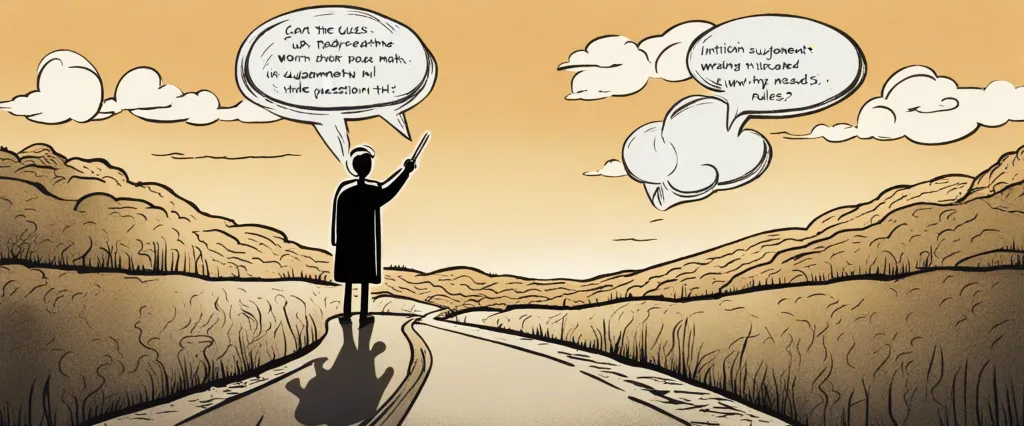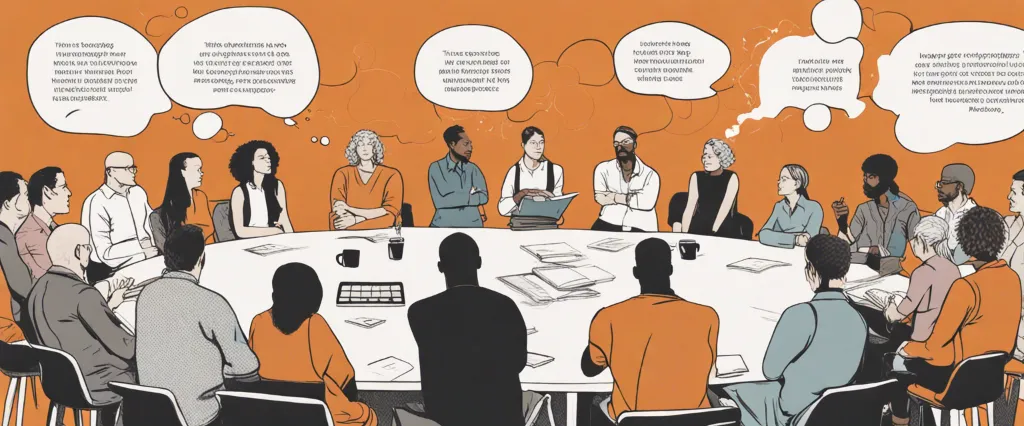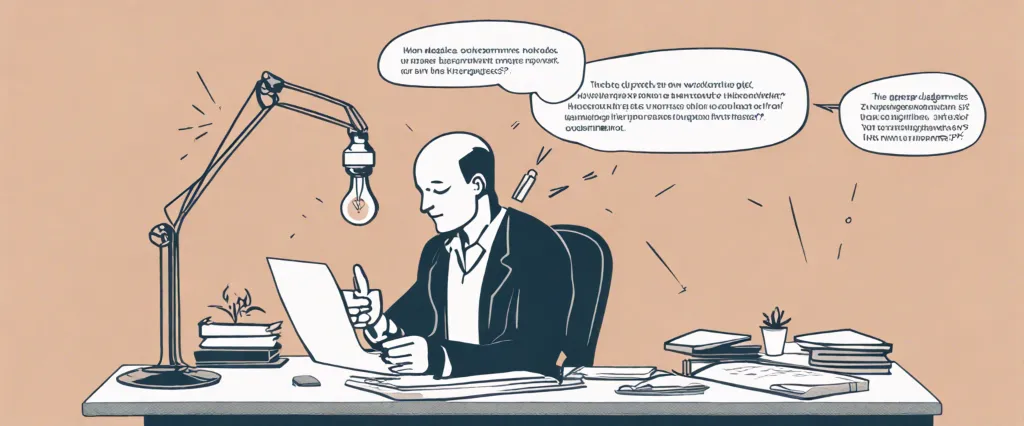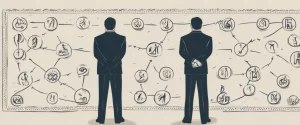——Work Rules by Laszlo Bock & Rebel Ideas by Matthew Syed

In today’s fast-paced and ever-evolving world, understanding how to navigate the complexities of work and harnessing the power of diverse perspectives has become crucial for success. As organizations strive to foster growth, innovation, and adaptability, two thought-provoking books have emerged as invaluable guides – “Work Rules” by Laszlo Bock and “Rebel Ideas” by Matthew Syed.
“Work Rules” takes readers into the heart of Google, one of the world’s most renowned companies, and offers a glimpse into the distinctive workplace culture that Bock helped shape during his time as Google’s Senior Vice President of People Operations. Drawing on his rich experiences, Bock presents a revolutionary approach to talent recruitment, management, and organizational behavior. By dissecting Google’s HR strategies, “Work Rules” uncovers unconventional insights on building teams, nurturing innovation, and creating an environment where employees thrive.
On the other hand, “Rebel Ideas” by Matthew Syed delves into the power of diversity in driving meaningful change and embracing the potential of unconventional thinking. Syed, a renowned journalist and author, explores the remarkable impact of cognitive diversity – the inclusion of different perspectives, backgrounds, and expertise – in various industries and realms of human endeavor. Through captivating narratives and extensive research, “Rebel Ideas” challenges traditional notions of groupthink and encourages organizations to leverage the collective intelligence of their teams.
While both “Work Rules” and “Rebel Ideas” share a common goal of exploring ways to revolutionize the workplace, they approach it from distinct angles. Bock offers a deep dive into the inner workings of a singular organization’s HR practices, uncovering the key principles that drive Google’s success. Conversely, Syed takes a broader perspective, exploring the societal impact of cognitive diversity and its potential to transform industries as a whole.
In this comparative study, we aim to analyze and contrast the principles, strategies, and case studies presented in “Work Rules” and “Rebel Ideas”. By critically examining these two texts, we will gain valuable insights into the power of effective talent management, the importance of embracing diverse perspectives, and the strategies organizations can employ to foster a culture of innovation.
As we embark on this journey, we invite you to join us in exploring the common threads, illuminating differences, and practical takeaways from these compelling works. In doing so, we hope to equip readers with the knowledge and strategies necessary to navigate the increasingly complex and rapidly changing landscape of work in the 21st century.
Brief Summary of Two Books
Work Rules by Laszlo Bock
Work Rules!” by Laszlo Bock is a management and HR guidebook that provides valuable insights into creating a successful and innovative work culture. Bock, who led People Operations at Google, shares his experience and lessons learned from working at one of the world’s most admired companies. The book emphasizes the importance of treating employees as individuals, fostering a culture of freedom and trust, and designing a hiring process that focuses on attracting top talent. Bock offers practical advice and specific examples on topics such as performance evaluations, compensation, work-life balance, and creating a diverse and inclusive workplace. Ultimately, “Work Rules!” encourages organizations to challenge traditional workplace practices and embrace a more people-centric approach to achieve long-term success.
Rebel Ideas by Matthew Syed
“Rebel Ideas” by Matthew Syed explores the power of diverse thinking and the value of diverse teams in solving complex problems and driving innovation. Through a combination of vivid storytelling, scientific research, and real-life examples, Syed shows that diversity is not just about race or gender, but also about various perspectives, backgrounds, and experiences.
Syed argues that cognitive diversity unleashes the potential for creativity, adaptability, and breakthrough thinking. He demonstrates this through engaging stories of individuals and teams who have challenged conventional wisdom, from the medical field to the intelligence community to the world of technology. Syed emphasizes the importance of an inclusive culture that encourages dissent and open dialogue, allowing everyone to contribute their unique insights and ideas.
The book also delves into the concept of “cognitive entrenchment” and how our unconscious biases limit our ability to consider alternative viewpoints. Syed provides tools and techniques to overcome these biases, fostering a mindset of curiosity, collaboration, and continual learning.
By challenging traditional notions of success and embracing diverse perspectives, “Rebel Ideas” offers a compelling argument for harnessing the power of collective intelligence to solve complex problems and create a better future. Ultimately, it inspires readers to cultivate a rebel mindset, embrace diversity, and challenge the status quo.
Comparison between Two Books

Similarities in Leadership & Collaboration
Both “Work Rules” by Laszlo Bock and “Rebel Ideas” by Matthew Syed highlight the importance of Leadership and Collaboration within organizations. Here are some similarities between the two books regarding these two aspects:
1. Emphasis on diverse perspectives: Both books emphasize the importance of incorporating diverse perspectives and ideas to foster innovation and creativity within teams. They argue that diverse teams, with people from different backgrounds and experiences, result in better decision-making and problem-solving.
2. The role of psychological safety: Both Bock and Syed stress the significance of creating a psychologically safe environment within teams. Psychological safety refers to a team culture where individuals feel comfortable taking risks, expressing their opinions, and making mistakes without fear of humiliation or retribution. Both authors argue that psychological safety fosters trust and enhances collaboration within teams.
3. Open and transparent communication: Both books promote open and transparent communication as key elements of effective leadership and collaboration. Bock suggests fostering a culture of transparency where employees have access to information, enabling them to make better decisions. Syed highlights the importance of open and honest communication channels where team members can freely express their thoughts and concerns.
4. The need for continuous learning and experimentation: Both Bock and Syed prioritize continuous learning and experimentation as crucial for fostering leadership and collaboration. Bock encourages organizations to adopt a growth mindset, where learning from failures is embraced and experimenting with new approaches is encouraged. Syed argues that leaders should create an environment that encourages learning from mistakes, promotes curiosity, and allows for iterative experimentation.
5. Trust and empowerment: Both authors emphasize the importance of trust and empowerment in leadership and collaboration. Bock suggests that leaders should trust their employees, empowering them to make decisions and take ownership of projects. Similarly, Syed argues that effective leaders empower their teams by giving them autonomy and trusting their capabilities.
Overall, both “Work Rules” and “Rebel Ideas” advocate for inclusive leadership styles, open communication, trust, and continuous learning to promote collaboration within teams. By valuing diverse perspectives, fostering a psychologically safe environment, and empowering individuals, both authors seek to enhance leadership and collaboration within organizations.
Divergences in Leadership & Collaboration
Work Rules by Laszlo Bock and Rebel Ideas by Matthew Syed are both insightful books that delve into various aspects of work culture and the role of leadership and collaboration within organizations. While they share some commonalities, there are notable divergences in their approaches to leadership and collaboration.
In Work Rules, Laszlo Bock, the former Senior Vice President of People Operations at Google, emphasizes the importance of creating an autonomous and empowering work environment. Bock argues that leaders should foster a culture that gives employees freedom and trust, allowing them to bring their authentic selves to work. He believes that this autonomy leads to higher levels of employee engagement, innovation, and ultimately, better business outcomes. Bock suggests that leaders should focus on eliminating unnecessary rules and bureaucracy, empowering their teams to make decisions, and providing them with the necessary resources to excel.
On the other hand, Rebel Ideas by Matthew Syed provides a different perspective on leadership and collaboration. Syed argues that diverse teams and cognitive diversity are the primary drivers of innovation and success. He challenges the notion that homogeneous teams are more efficient, suggesting that they are more susceptible to groupthink and lack the ability to consider alternative perspectives. Syed emphasizes the need for leaders to actively seek out differing views and ideas, encouraging constructive dissent and debate within their teams. He believes that collaboration within diverse teams allows for the emergence of groundbreaking and revolutionary ideas.
While both books acknowledge the importance of leadership and collaboration in creating successful organizations, they diverge in their emphasis. Work Rules focuses on creating an environment that empowers individuals to excel, whereas Rebel Ideas emphasizes the need for diverse teams and the importance of collective intelligence.
Additionally, Work Rules emphasizes the role of leaders as facilitators who enable their teams to thrive, while Rebel Ideas highlights the role of leaders as catalysts who actively seek out diverse perspectives and challenge conventional thinking.
Moreover, Work Rules draws extensively from Google as a case study, showcasing the practices that have made the company successful. Rebel Ideas, however, draws from a broader range of examples and research studies to support its argument that cognitive diversity is crucial for innovation.
In conclusion, Work Rules and Rebel Ideas offer different perspectives on leadership and collaboration within organizations. While Work Rules emphasizes empowerment and autonomy, Rebel Ideas focuses on the importance of cognitive diversity and the active pursuit of differing viewpoints. Both books provide valuable insights into creating an environment that fosters innovation and success, but they take divergent paths in their approaches to leadership and collaboration.

Conclusion
Both “Work Rules” by Laszlo Bock and “Rebel Ideas” by Matthew Syed are highly regarded books in their respective fields. The choice between the two ultimately depends on your personal interests and what you hope to gain from the reading experience.
“Work Rules” is a book focused on human resources and management practices, written by Google’s former Senior Vice President of People Operations. Bock shares valuable insights into creating a successful and engaging workplace culture, based on his experiences and experiments at Google. This book is ideal for those interested in understanding the inner workings of one of the world’s most innovative and successful companies, as well as learning about effective HR strategies.
On the other hand, “Rebel Ideas” explores the power of diverse thinking and challenge to improve decision-making. Matthew Syed, a well-known author and sports journalist, delves into research from various fields to understand why diverse teams can outperform homogeneous ones. He argues that cognitive diversity, openness to new ideas, and the ability to challenge one’s assumptions are crucial for success in complex and rapidly changing environments. If you are interested in psychology, innovation, or simply want to broaden your perspective, “Rebel Ideas” may be the better choice for you.
Both books offer valuable insights, but they focus on different aspects of organizational success. Consider your specific interests, career goals, and the areas you want to develop in before making a choice.


